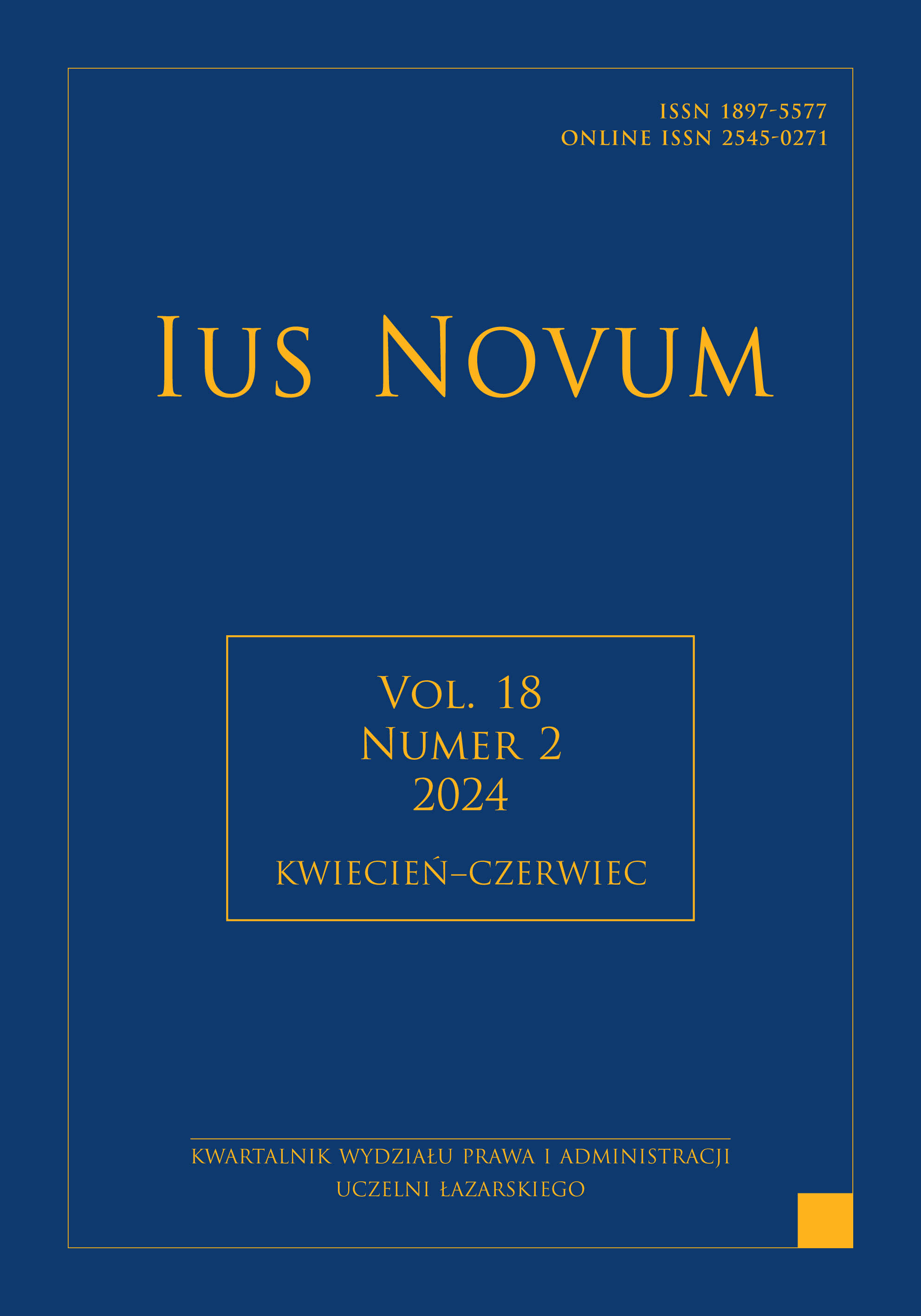Abstract
The author discusses the nature and scope of changes introduced to the Code of Petty Offences and the Code of Procedure in Petty Offences Cases by the act of December 2, 2021. The amendment represents a far-reaching intervention by the legislator in the current legal status regarding offences against safety and order in transportation. It foresees quite significant modifications in terms of the legal-criminal response to them, transformations of the characteristics of selected types of prohibited acts, as well as propose entirely new types of prohibited acts. From the conducted analysis, it appears that the guiding thought behind the above changes is primarily to increase the degree of punitiveness of the petty offences law towards the perpetrators of traffic violations. Such a legislative approach naturally raises concerns about the instrumental use of the petty offences law with respect to the perpetrators of these kinds of offences. The adopted direction of changes raises suspicions that the legislator has not thoroughly familiarized themselves with the matter covered by their intervention. In any case, it does not find grounding in the current state of traffic criminality, or in the analysis of judicial practice. An increase in repressiveness has never directly translated into a reduction in traffic criminality. The latter is indeed a much more complex problem, involving the necessity of multi-faceted references.
References
Bafia J., Egierska D., Śmietanka I., Kodeks wykroczeń. Komentarz, Warszawa 1980.
Daniluk P., w: idem (red.), Kodeks wykroczeń. Komentarz, Warszawa 2016.
Jakubowska-Hara J., w: P. Daniluk (red.), Reforma prawa wykroczeń. Tom I, Warszawa 2019.
Kluza J., Nowelizacja Kodeksu wykroczeń w zakresie wykroczeń przeciwko bezpieczeństwu i porządkowi w komunikacji, „Ius Novum” 2022, nr 4.
Marek A., Prawo wykroczeń (materialne i procesowe), Warszawa 2012.
Opinia do druku nr 1504 – Krajowa Rada Sądownictwa, file:///C:/Users/kluca/Downloads/420.88%20opinia.pdf.
Opinia do projektu ustawy Naczelna Rada Adwokacka, https://orka.sejm.gov.pl/Druki9ka.nsf/0/8AD4775C38BB9A66C125876C0053D637/%24File/1504-006.pdf.
Pismo Rzecznika Praw Obywatelskich, II.561.1.2021.MH, https://orka.sejm.gov.pl/Druki9ka.nsf/0/1A0310008295FFD7C125875E003ECCC4/%24File/1504-004.pdf.
Radecki W., w: P. Daniluk (red.), Reforma prawa wykroczeń. Tom I, Warszawa 2019.
Radecki W., Co dalej z polskim prawem wykroczeń? (część 1), „Prokuratura i Prawo” 2023, nr 5.
Radecki W., Dezintegracja polskiego prawa penalnego, „Prokuratura i Prawo” 2014, nr 9.
Stefański R.A., Wykroczenia drogowe. Komentarz, Zakamycze 2005.
Projekt Kodeksu wykroczeń (redakcja z lutego 1991 r.), przygotowany przez Komisję do Spraw Reformy Prawa Karnego – Zespół do Spraw Ujednolicenia Rozwiązań Prawa Karnego i Prawa o Wykroczeniach.
Uzasadnienie do poselskiego projektu ustawy o zmianie ustawy – Kodeks karny, druk sejmowy nr 378, Sejm VII kadencji, https://orka.sejm.gov.pl/Druki7ka.nsf/0/E737B26FC-8784129C12579F9003263A4/%24File/378.pdf.
Uzasadnienie do rządowego projektu ustawy o zmianie ustawy – Prawo o ruchu drogowym oraz niektórych innych ustaw, druk sejmowy nr 1504, Sejm IX kadencji, https://orka.sejm.gov.pl/Druki9ka.nsf/0/9C68E8FF143EDFFAC125872E0047444E/%24File/1504.pdf.

This work is licensed under a Creative Commons Attribution-NonCommercial-ShareAlike 4.0 International License.

